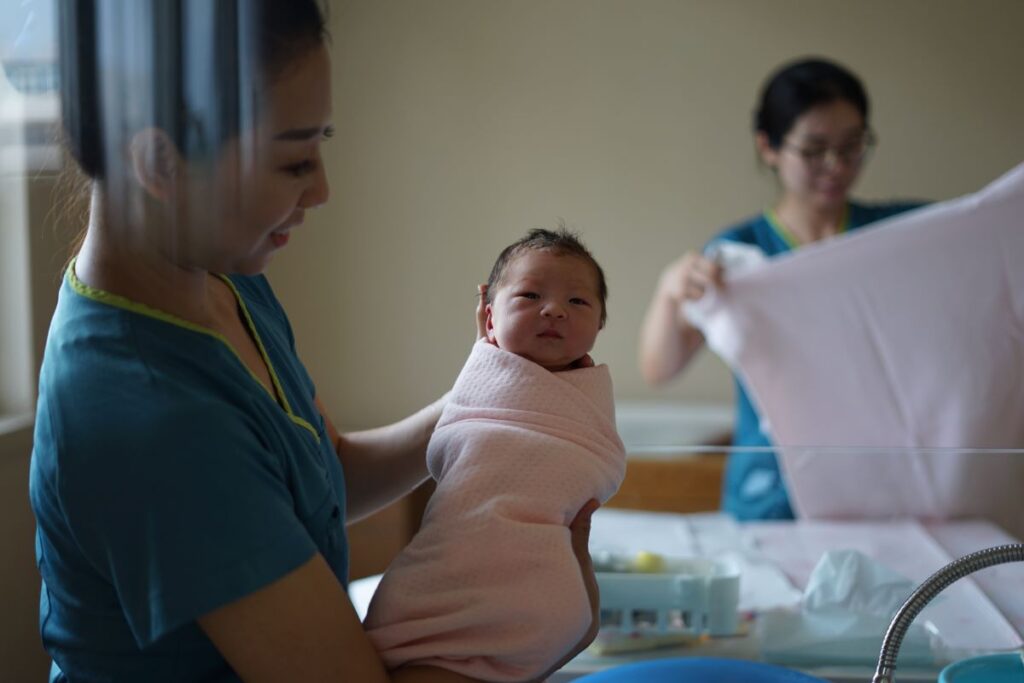
The COVID-19 pandemic has been a period of elevated stress. The health-related risks of the pandemic have taken a toll on general well-being, compounded by disruption to everyday life as a result of the necessary social distancing and lockdown measures. Preliminary studies have shown increased rates of depression, anxiety, and insomnia in the immediate aftermath of the pandemic (Wang et al., 2020).
Due to the uniquely stressful experience of pregnancy during a pandemic, it is vital that we understand the impact of these coinciding events on mental health. Pregnancy is associated with increased risk of mental health difficulties (Rees et al., 2019). COVID-era research has suggested that pregnant individuals are reporting increased rates of anxiety and depression (Lebel et al., 2020). Having an understanding of mental health impact, risk, and protective factors, can help us develop relevant support measures to alleviate struggles.
Cognitive appraisal has been identified as a factor of interest; theory states that the way in which we make sense of and understand a stressful event has an impact on our emotional and behavioural outcomes (Lazarus & Folkman, 1984). Social support has also been highlighted as a protective factor against adverse mental health outcomes (King et al., 2012). In the context of COVID-19, social support was shown to lower rates of mental health difficulties (Lebel et al., 2020).
The primary objectives of a recent study by Khoury et al (2021) were:
- To describe the prevalence of mental health difficulties (depression, anxiety, and insomnia) in pregnant individuals during the pandemic.
- To determine which COVID-19 related experiences (social isolation, economic hardship, relationship difficulties) impact mental health outcomes.
- To evaluate whether cognitive appraisal of COVID-19 and social support act as protective factors against adverse mental health outcomes.

Both pregnancy and COVID-19 restrictions are associated with an increased risk of mental health difficulties. It’s therefore crucial to understand more about the mental health of pregnant individuals during the pandemic.
Method
The sample consisted of 303 pregnant individuals from Ontario, Canada.
Data were gathered using questionnaires. COVID-19 related experiences (financial hardship, relationship conflict, social isolation) were assessed in relation to mental health difficulties using a measure developed by one of the authors. Participants were also asked yes/no questions about their experiences with COVID-19 diagnoses, infections, and quarantine.
Anxiety (general and pregnancy-specific) was assessed using the Cambridge Worry Scale (Statham et al., 1997). The Centre for Epidemiological Studies Depression Scale (CES-D) was used as a measure of depressive symptoms present in the past week. The Insomnia Severity Index (ISI; Bastien et al., 2001) was used as a measure of insomnia.
Cognitive appraisal of the pandemic was assessed using a single item: “Taking everything about COVID-19 into account, the effects of COVID-19 on me and my household have been…” Responses were on a scale from 1 (very positive) to 5 (very negative).
Social support was measured by the Multidimensional Scale of Perceived Social Support (MSPSS; Zimet et al., 1988).
The questionnaires were completed online.
The authors conducted linear regression analyses to assess the effects of COVID-related factors on depression, anxiety, and insomnia symptoms. Cognitive appraisal and social support were assessed for their roles as risk or protective factors by testing whether they independently or interactively predicted mental health symptoms.
Results
Depression and anxiety
57.1% of the sample scored within the range indicative of clinically elevated depression.
Greater than 30% of participants reported elevated anxieties. Participants were most worried about:
- something being wrong with the infant (43.3%)
- whether their partner will be at the birth (41.8%)
- and giving birth (39.6%)
Overall, depression and anxiety levels were higher in this sample than in pre-COVID pregnancy samples (Kiviruusu et al., 2020).
Insomnia
19% reported elevated insomnia, but this was not significantly different from pre-COVID pregnancy samples (Sedov et al., 2019).
Factors related to COVID-19
Risk of COVID-19 infection, social isolation, and relationship difficulties were significantly associated with elevated depression. These factors, as well as financial difficulties, were also significantly associated with anxiety symptoms and sleep problems.
Cognitive appraisal and social support
5.0% of the sample indicated that the overall effect of COVID-19 on their household was very negative; 72.3% stated that it was negative, 11.9% stated there was no effect, and 10.9% indicated a positive effect. Negative cognitive appraisal was significantly correlated with elevated depression, anxiety, and insomnia.
Perceived social support was significantly correlated with a lower incidence of mental health difficulties.
Those who reported both more negative appraisal of COVID-19 as well as lower social support experienced a greater incidence of mental health problems, compared to if they reported a negative appraisal combined with higher social support. This suggests that social support acts as a protective factor against mental health difficulties for those who perceived the pandemic to have a negative impact on their household. Those who perceived the pandemic as positive had a lower overall incidence of mental health difficulties regardless of their level of social support.

Depression and anxiety levels in this sample of pregnant women were found to be higher than pre-pandemic levels.
Conclusion
This study identified elevated rates of depression and anxiety in pregnant individuals, as measured during the COVID-19 pandemic. Though elevated insomnia and sleep problems were reported, they did not differ significantly from pre-COVID pregnancy samples.
Financial difficulties, social isolation, risk of COVID-19 infection, and relationship difficulties experienced as a result of the pandemic were found to be related to elevated mental health symptoms. Results also indicated a detrimental effect of negative cognitive appraisal and a protective effect of greater access to social support.
These results highlight the impact of the pandemic on the wellbeing of pregnant individuals, and indicate areas for focus when developing intervention and support measures.

The results of this study highlight the impact of the pandemic on the wellbeing of pregnant individuals, and indicate areas for focus when developing intervention and support measures.
Strengths and limitations
Strengths:
- Several of the measures used in this study have been validated in pregnant and postpartum participants.
- The results of this study have been backed up by other studies that show similar trends.
- Conducting the study online allowed for safe participation during a pandemic, as well as allowing for broader recruitment and a larger sample
Limitations:
- Self-report measures carry with them the risk of participants not being entirely accurate or truthful. However, this risk is mitigated by anonymity and being able to complete the tasks online.
- The data reported is correlational – other factors separate from those being measured could have contributed to the elevated mental health symptoms in this population. Longitudinal data would better illustrate the impact of various pandemic- and pregnancy-related factors on mental health and allow for an understanding of the trajectory of various mental health problems.
- Data on past or existing diagnoses were not collected, therefore we cannot determine how many of the mental health symptoms identified through the measures were present prior to the pandemic and/or pregnancy.
- While some measures were validated in relevant samples, some were not. Additionally, results for COVID-19 related experiences and cognitive appraisal were gathered using single-item measures created by the authors. We are therefore unable to comment on the validity of these measures for their intended purpose.
- The authors did not report any power analysis, so we therefore cannot determine if the sample size was sufficient to draw conclusions from the data gathered.

The data reported in this study is correlational – other factors separate from those being measured could have contributed to the elevated mental health symptoms in this population.
Implications for practice
Intervention
Gaining an understanding of the experiences of pregnant people in the prevailing and ever-changing circumstances of the pandemic is vital for the development and provision of the appropriate mental health support resources. This study lays some groundwork with regards to the risk and protective factors implicated in mental health outcomes, and can serve as a building block for a screening tool for use by health practitioners, allowing easier identification of those who would benefit from added mental health support during global pandemics.
Results suggest that cognitive appraisal and social support serve as protective factors against adverse mental health outcomes. Targeting these during intervention can help build a strong foundation against mental health symptoms.
Perinatal practice
Given that this population already has regular contact with healthcare practitioners in the form of their perinatal care team, these results reveal the importance of training perinatal healthcare workers to screen for and recognise mental health problems in their patients, including questions about pandemic-related difficulties.
Directions for future research
The authors state that the population used for this study are considered generally low risk with regards to mental health difficulties. However, the results of this study reveal a high prevalence of mental health difficulties, indicating the severity of the impact of the pandemic and coinciding pregnancy on mental health, and their need for greater support. Future research should examine the impact of the pandemic on pregnant individuals in higher risk groups, such as those with greater pre-existing health, interpersonal, or socioeconomic difficulties.

It’s important to train perinatal healthcare workers to screen for and recognise mental health problems in their patients, including questions about pandemic-related difficulties.
Conflicts of interest
None.
Links
Primary paper
Khoury, J. E., Atkinson, L., Bennett, T., Jack, S. M., & Gonzalez, A. (2021). COVID-19 and mental health during pregnancy: The importance of cognitive appraisal and social support. Journal of Affective Disorders, 282, 1161-1169.
Other references
Bastien, C. H., Vallières, A., & Morin, C. M. (2001). Validation of the Insomnia Severity Index as an outcome measure for insomnia research. Sleep Medicine, 2(4), 297-307.
King, S., Dancause, K., Turcotte‐Tremblay, A. M., Veru, F., & Laplante, D. P. (2012). Using natural disasters to study the effects of prenatal maternal stress on child health and development. Birth Defects Research Part C: Embryo Today: Reviews, 96(4), 273-288.
Kiviruusu, O., Pietikäinen, J. T., Kylliäinen, A., Pölkki, P., Saarenpää-Heikkilä, O., Marttunen, M., … & Paavonen, E. J. (2020). Trajectories of mothers’ and fathers’ depressive symptoms from pregnancy to 24 months postpartum. Journal of Affective Disorders, 260, 629-637.
Lazarus, R. S., & Folkman, S. (1984). Stress, appraisal, and coping. Springer publishing company.
Lebel, C., MacKinnon, A., Bagshawe, M., Tomfohr-Madsen, L., & Giesbrecht, G. (2020). Elevated depression and anxiety symptoms among pregnant individuals during the COVID-19 pandemic. Journal of affective disorders, 277, 5-13.
Rees, S., Channon, S., & Waters, C. S. (2019). The impact of maternal prenatal and postnatal anxiety on children’s emotional problems: a systematic review. European child & adolescent psychiatry, 28(2), 257-280.
Sedov, I., Madsen, J. W., Goodman, S. H., & Tomfohr-Madsen, L. M. (2019). Couples’ treatment preferences for insomnia experienced during pregnancy. Families, Systems, & Health, 37(1), 46.
Statham, H., Green, J. M., & Kafetsios, K. (1997). Who worries that something might be wrong with the baby? A prospective study of 1072 pregnant women. Birth, 24(4), 223-233.
Wang, C., Pan, R., Wan, X., Tan, Y., Xu, L., Ho, C. S., & Ho, R. C. (2020). Immediate psychological responses and associated factors during the initial stage of the 2019 coronavirus disease (COVID-19) epidemic among the general population in China. International journal of environmental research and public health, 17(5), 1729.
Zimet, G. D., Dahlem, N. W., Zimet, S. G., & Farley, G. K. (1988). The multidimensional scale of perceived social support. Journal of personality assessment, 52(1), 30-41.
Photo credits
- Photo by Alicia Petresc on Unsplash
- Photo by Heike Trautmann on Unsplash
- Photo by Pedro da Silva on Unsplash
- Photo by Anastasiia Chepinska on Unsplash
- Photo by Chris Lawton on Unsplash
- Photo by 东旭 王 on Unsplash
